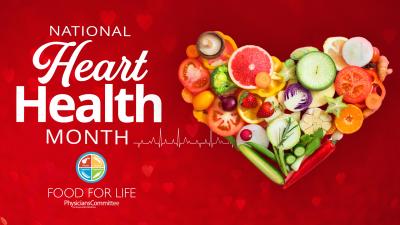Fruit and Vegetable Intake during Young Adulthood Prevents Heart Disease
Eating fruits and vegetables as a young adult prevents heart disease later in life, according to a study published online in Circulation. Researchers followed 2,506 participants as part of the Coronary Artery Risk Development in Young Adults (CARDIA) study for a 20-year period and monitored fruit and vegetable intake and calcium build-up in their arteries, a precursor to heart disease. Those who consumed seven to nine servings of fruits and vegetables a day experienced less plaque accumulation and were 25 percent less likely to have heart disease, compared with those who consumed fewer servings of fruits and vegetables. Fruit and vegetable intake may lower plaque deposits by improving blood pressure, lowering cholesterol, and increasing intake of antioxidants. These findings support the benefits of healthful dietary patterns established early in life for disease prevention and how dietary interventions may better treat and prevent heart disease, specifically.
References
- Miedema MD, Petrone A, Shikany JM, et al. The association of fruit and vegetable consumption during early adulthood with the prevalence of coronary artery calcium after 20 years of follow-up: the CARDIA study. Circulation. Published online October 26, 2015.








